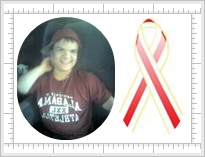A risk factor is anything that affects a person's
chance of getting a disease such as cancer.
Different cancers have
different risk factors. For example, exposing skin to strong sunlight is a risk factor for skin cancer. Smoking is a risk
factor for cancers of teh lung, mouth, larynx (voice box), bladder, kidney, several other organs, and for certain leukemias.
But risk factors don't tell
us everything. Having a risk factor, or even several risk factors, does not mean that you will get the disease. And many people
who get the disease may not have had any known risk factors.
Scientists have found several risk factors that make a person more likely to develop nasopharyngeal
cancer (NPC).
Gender
NPC is found about twice as often in males as it
is in females.
Race/Ethnicity
In the United States, NPC is most common
in Chinese Americans, followed by other Asian-American groups, African Americans, Hispanic/Latinos, and whites.
Diet
People who live in areas of Asia, northern Africa, and the Arctic region where NPC is common
typically eat diets very high in salt-cured fish and meat. Indeed, the rate of this cancer is dropping in southeast China
as people begin eating a more Westernized diet. In contrast, some studies have suggested that diets high in fruits and vegetables
may lower the risk of NPC.
Epstein -Barr virus infection
Almost all nasopharyngeal
cancer cells contain parts of the Epstein-Barr virus (EBV), and most people with nasopharyngeal cancer have evidence of infection
by this virus in their blood.
Infection with EBV is very common throughout
the world, often occurring in childhood. In the United States, where infection with this virus tends to occur in slightly
older children, it often causes infectious mononucleosis("mono"), usually in teens.
But the link between EBV infection and NPC is complex
and not yet completely understood. EBV infection alone is not enough to cause NPC, since infection with this virus is very
common, and this cancer is rare. Other factors, such as a person's genes, may affect how the body deals with EBV, which
in turn may affect how EBV contributes to the development of NPC.
Genetic Factors
A person's genes may affect their risk for NPC. For example, just as people have different
blood types, they also have different tissue types. Studies have found that people with certain inherited tissue types have
an increased risk of developing NPC. Tissue types affect immune responses, so this may be related to how a person's body reacts
to EBV infection.
Family History
Family members of people with NPC are more
likely to get this cancer. It is not known if this is because of inherited genes, shared environmental factors (such as the
same diet or living quarters), or some combination of these.
Other possible risk factors
Most
(but not all) studies have shown that smoking may contribute to the development of NPC. More research is needed to define
this link.
Some (but not all) studies have also suggested that workplace
exposure to formaldehyde or wood dust may increase the risk of NPC.
